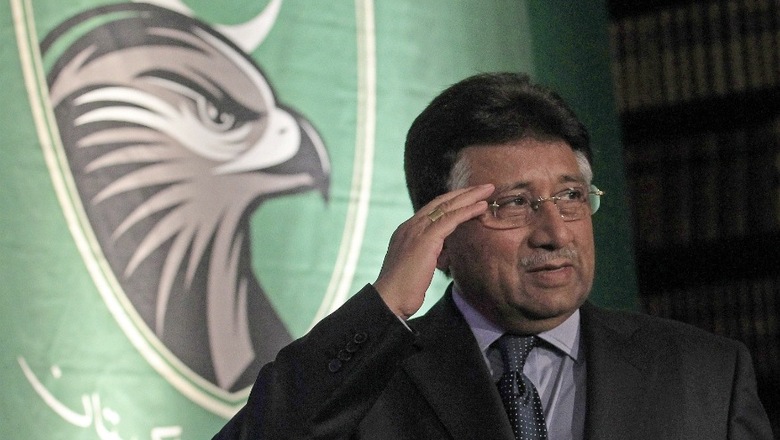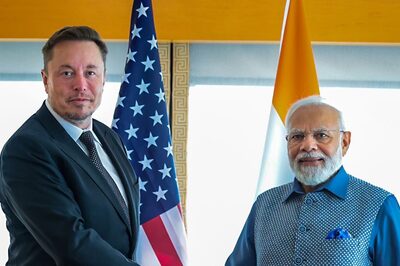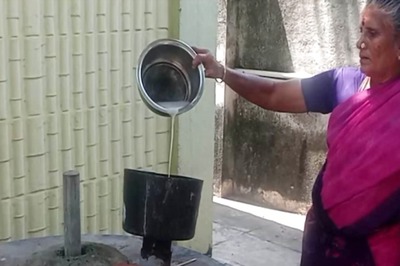
views
Islamabad: A Pakistan special court issued a bizarre but apparently symbolic order for former military ruler Pervez Musharraf on Thursday, saying his corpse should be dragged to parliament and hang for three days if he dies before his execution.
The court sentenced Musharraf to death on Tuesday after finding him guilty of high treason for subverting the constitution in 2007.
Thursday's announcement came after the government said it had found fault with the sentence, apparently taking sides in a split between the military and the judiciary, and the general's lawyers said he plans to appeal.
The court directed law enforcers to apprehend Musharraf, currently receiving medical treatment in Dubai, to ensure the death sentence is carried out.
But if found dead beforehand, "his corpse (should) be dragged to D-Chowk, Islamabad, Pakistan, and be hanged for three days", it said.
The chowk, or roundabout, is just outside parliament. Legal experts termed the instructions unconstitutional, even if symbolic.
There is only one precedent - a court sentenced a serial killer to hanging at a public place and his body to be cut into 100 pieces in front of the families of the victims. The sentence was never carried out.
Information Minister Firdous Ashiq Awan said on Wednesday the government's legal team had found "gaps and weaknesses" in the original death sentence after lawyers briefed Prime Minister Imran Khan about the case.
Musharraf, 76, who was tried and sentenced in absentia, said in Dubai the charges against him were politically motivated.
Musharraf's lawyers said they will appeal against the sentence to the Supreme Court, which the government, the complainant in the treason case, is unlikely to oppose.
The verdict sent shudders through the military, which has ruled Pakistan for about half the country's history. The army accused the court of ignoring legal processes and defended Musharraf's patriotism. It said the ruling had caused "pain and anguish" in the ranks.
Attorney General Anwar Mansoor Khan has said Musharraf wasn't given a fair trial, taking the army line in a standoff between the judiciary and the military.
Tensions arose after Supreme Court struck down a three-year extension in service given by the government to army chief General Qamar Javed Bajwa.
Musharraf seized power in a coup in 1999 and later ruled as president.
In November 2007, Musharraf suspended the constitution and imposed emergency rule, prompting protests. He resigned in 2008 to avoid the threat of impeachment.
When Nawaz Sharif, whom Musharraf deposed in 1999, was re-elected prime minister in 2013, he initiated a treason trial against Musharraf and in 2014 he was charged with high treason. "This case was taken up only due to a personal vendetta by some people against me," Musharraf said in a video statement from his hospital bed in Dubai.
Musharraf travelled to Dubai after a travel ban was lifted in 2016 and he has refused to appear before the court, despite multiple orders.




















Comments
0 comment